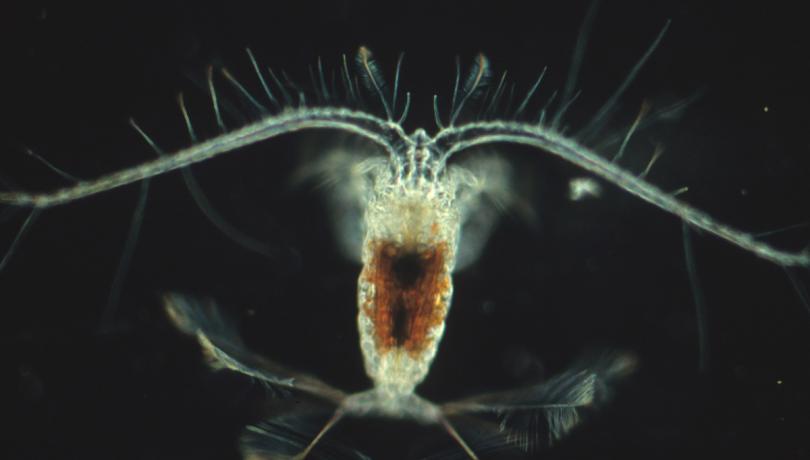A scientific study reveals that the aging process in marine copepods is linked to an increase in cellular oxidative damage. Moreover, overeating increases mortality rates and shortens the life of these components of the plankton. These are the main results that a team of scientists from the ICM, in collaboration with researchers from Greece, Brazil and Germany, has published in Scientific Reports, a multidisciplinary journal of the prestigious Nature group.

A scientific study reveals that the aging process in marine copepods is linked to an increase in cellular oxidative damage. Moreover, overeating increases mortality rates and shortens the life of these components of the plankton. These are the main results that a team of scientists from the ICM, in collaboration with researchers from Greece, Brazil and Germany, has published in Scientific Reports, a multidisciplinary journal of the prestigious Nature group. The article provides new knowledge about the underlying biological mechanisms of aging in these small animals and about their ecological implications.
Copepods are a group of tiny crustaceans that play a key role in the oceans. They provide a crucial link connecting the lower and upper levels of the food chain in marine ecosystems. Specifically they act as an intermediate step between primary production by microscopic algae and the larger consumers, such as fish. Copepods are present in all the seas and in fact they are considered probably the most abundant animal on the planet group.
The study provided significant evidences that the impairment of the vital physiological functions and increased mortality of copepods through ageing are associated with an oxidation process called lipid peroxidation, which attacks the lipidic components of the cell membrane. The current study also shows that in copepods the increased oxidative damage with aging is associated with an increase in the relative content of a fatty acid called 22:6(n-3), as described before in the fruit fly, rat and mouse. This fatty acid is an essential component of cell membranes, but its accumulation makes them more susceptible to peroxidation.
Moreover, the article shows for the first time in copepods that a lower food intake is associated with a reduction in mortality rates and the extension of the lifespan, as reported for other animals. In the case of copepods, this longevity is accompanied by an extension of the reproductive period. Given the low overall production of the oceans, this response may be a strategy, at least in certain species of copepods, to improve their chance to reproduce in an environment generally poor in nutrients such as the pelagic ecosystem, where primary production is highly heterogeneously distributed both in space and time.
Paper
Enric Saiz, Albert Calbet, Kaiene Griffell, José Guilherme F. Bersano, Stamatina Isari, Montserrat Solé, Janna Peters and Miquel Alcaraz. Ageing and Caloric Restriction in a Marine Planktonic Copepod. Scientific Reports 5, Article number: 14962 (2015), doi:10.1038/srep14962